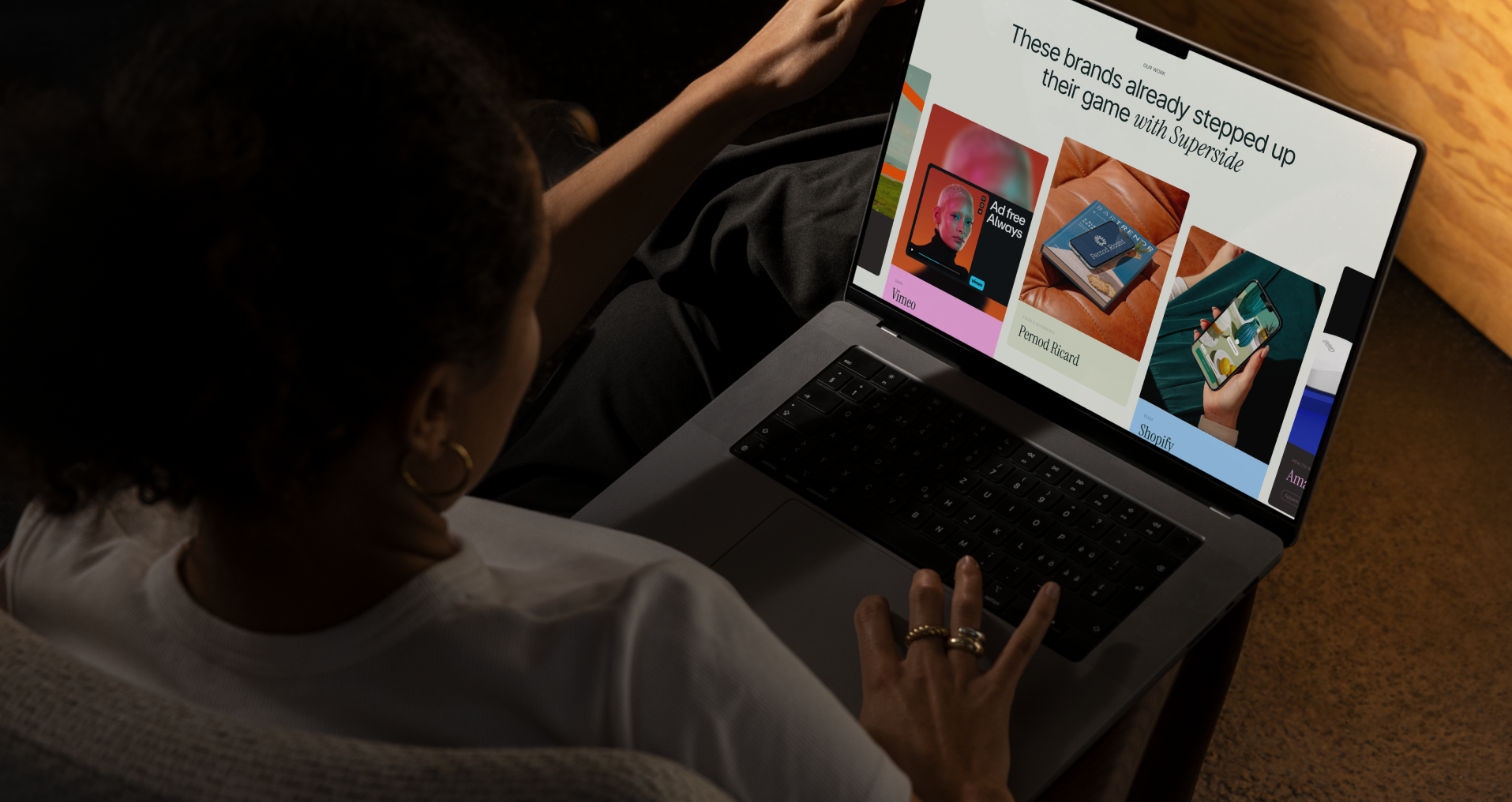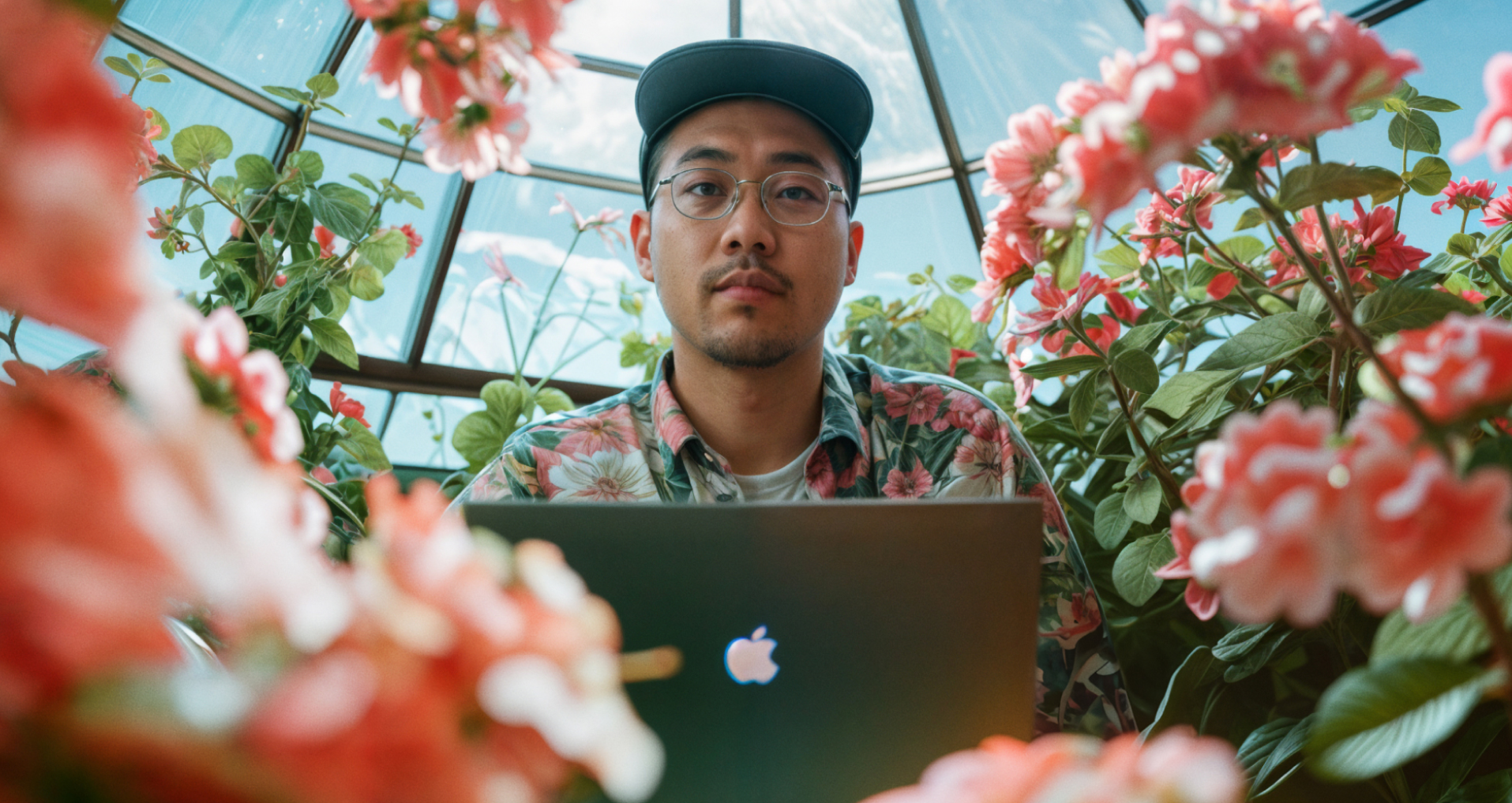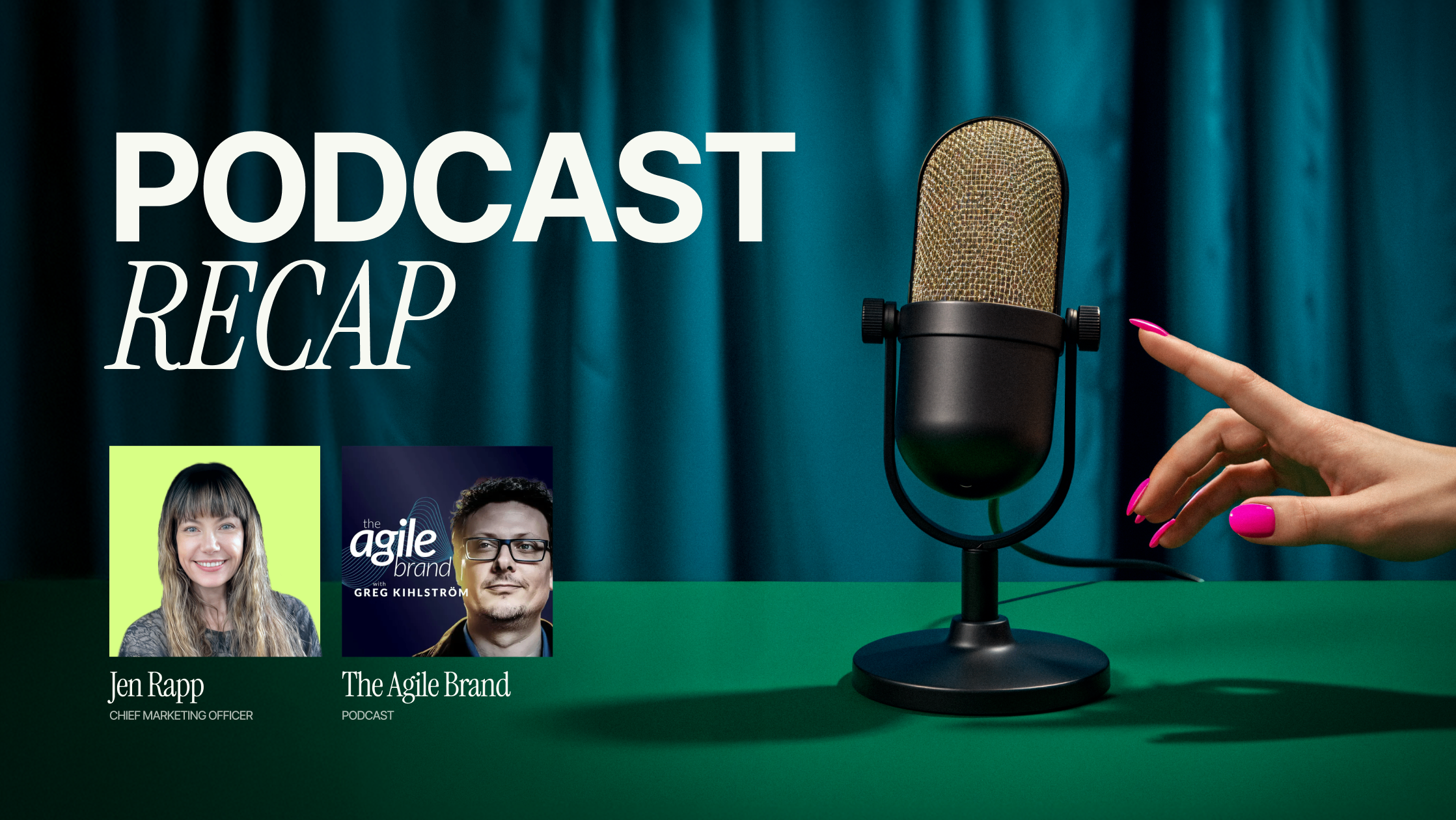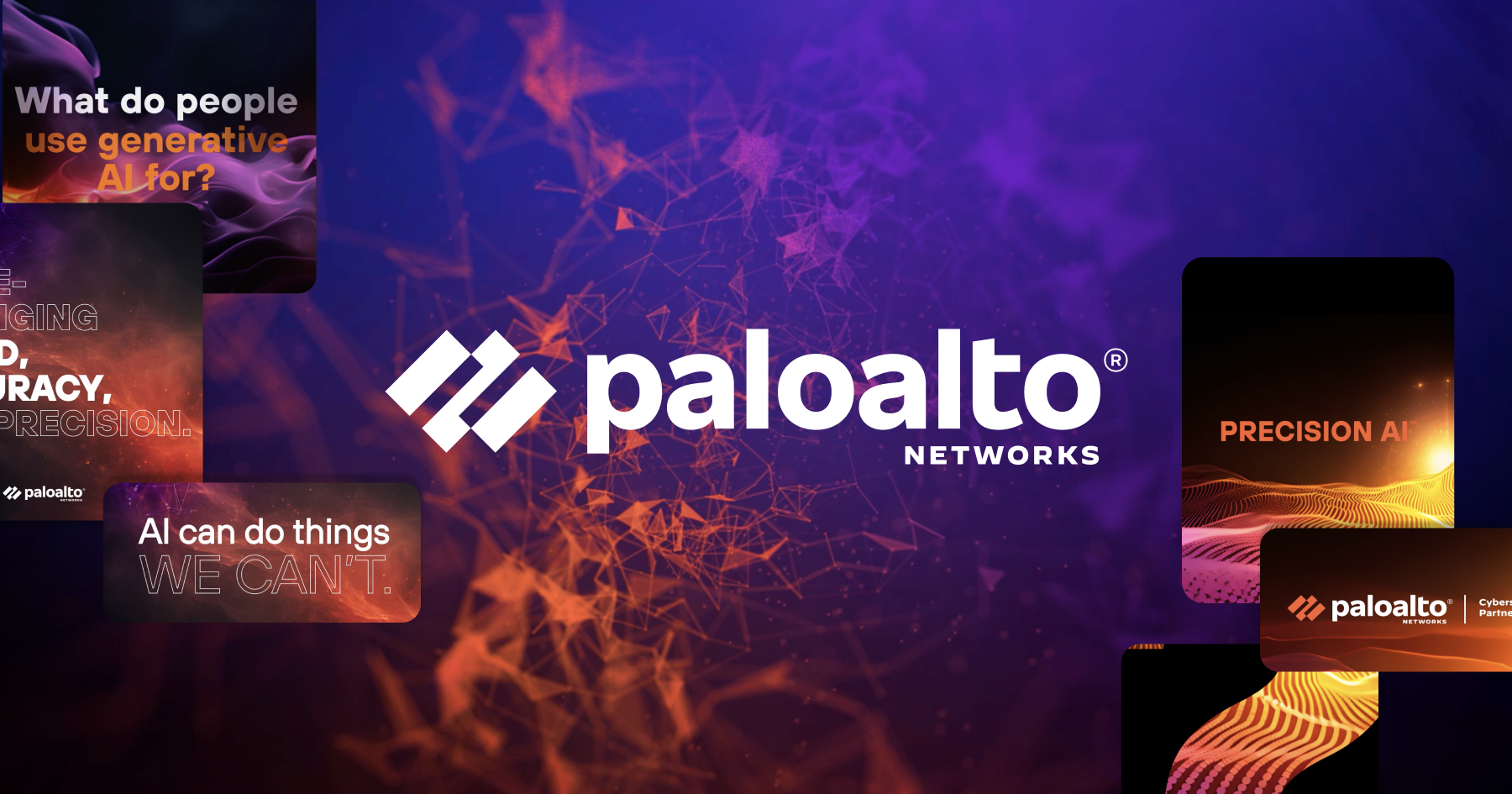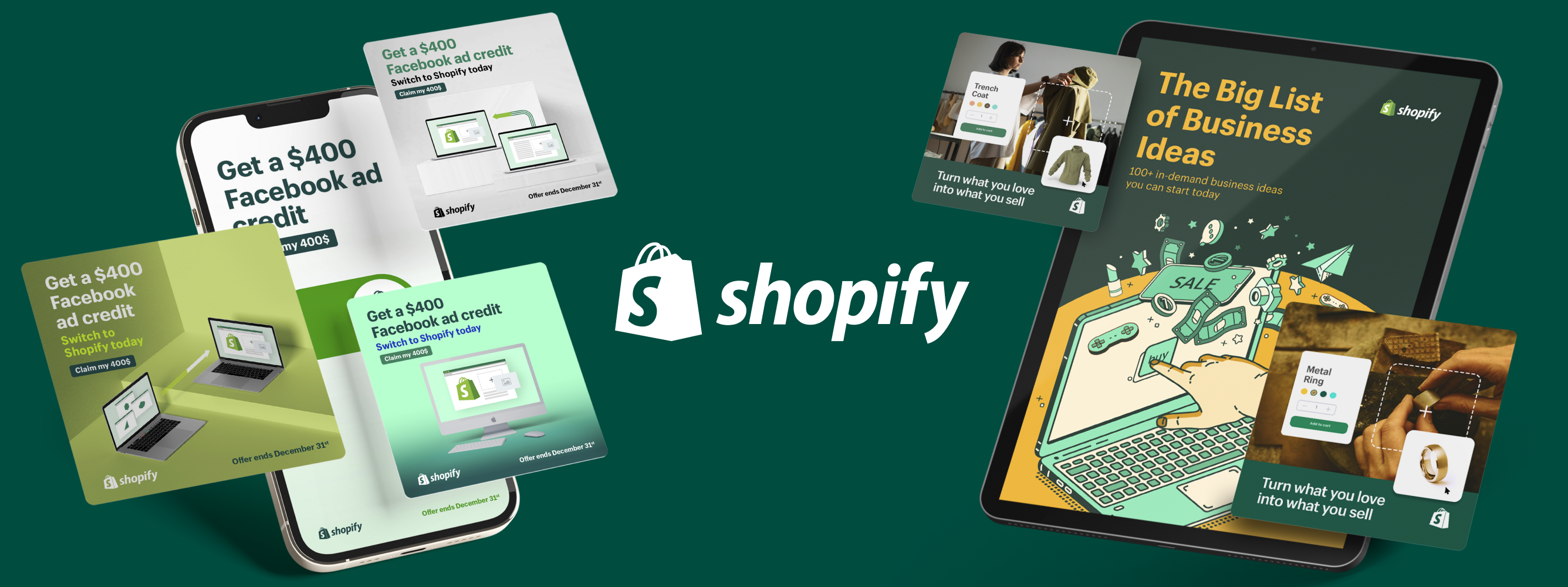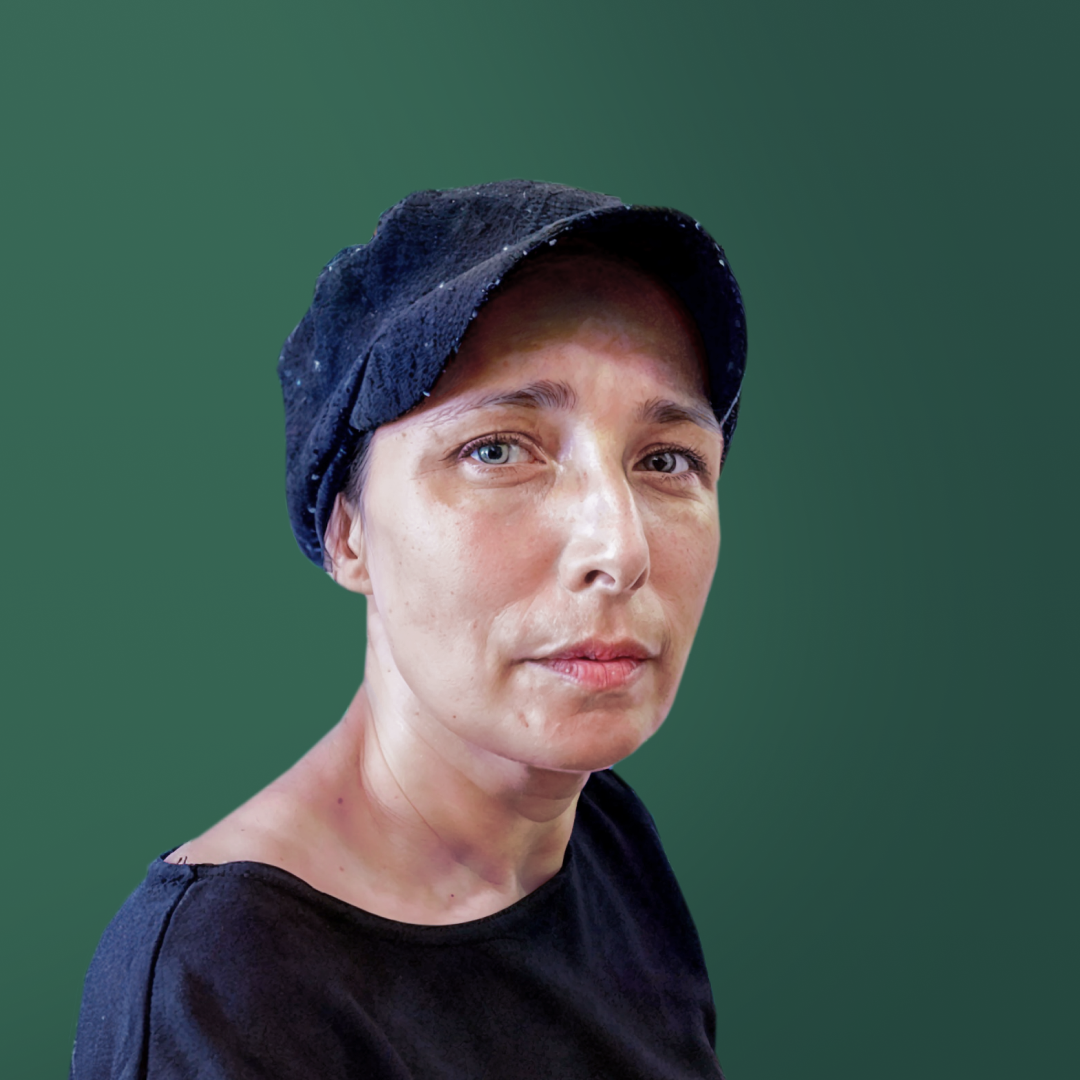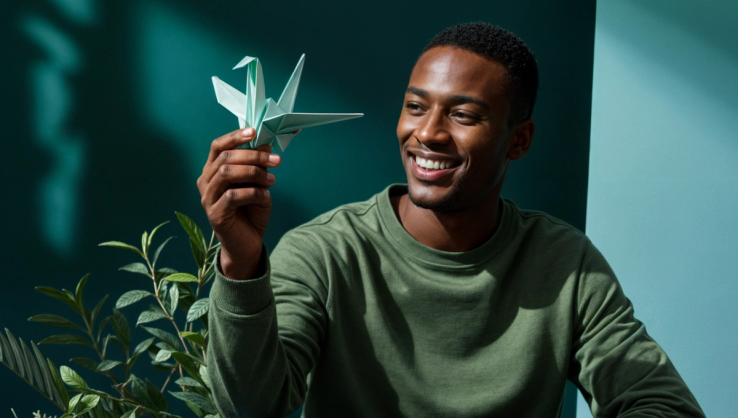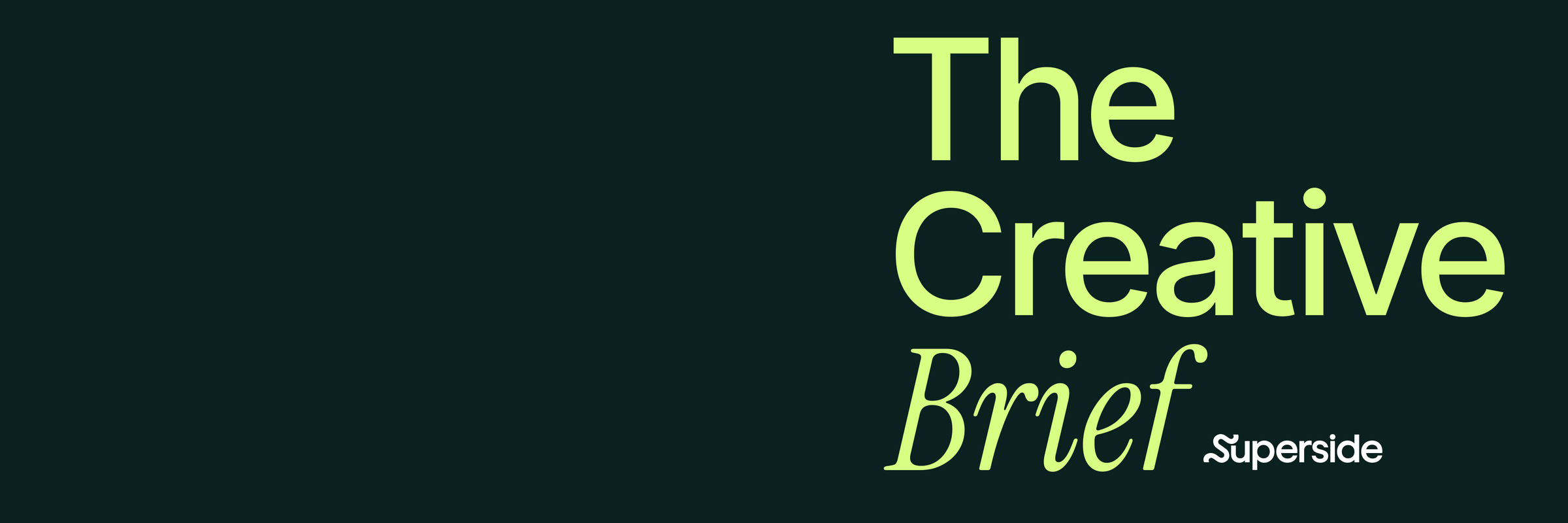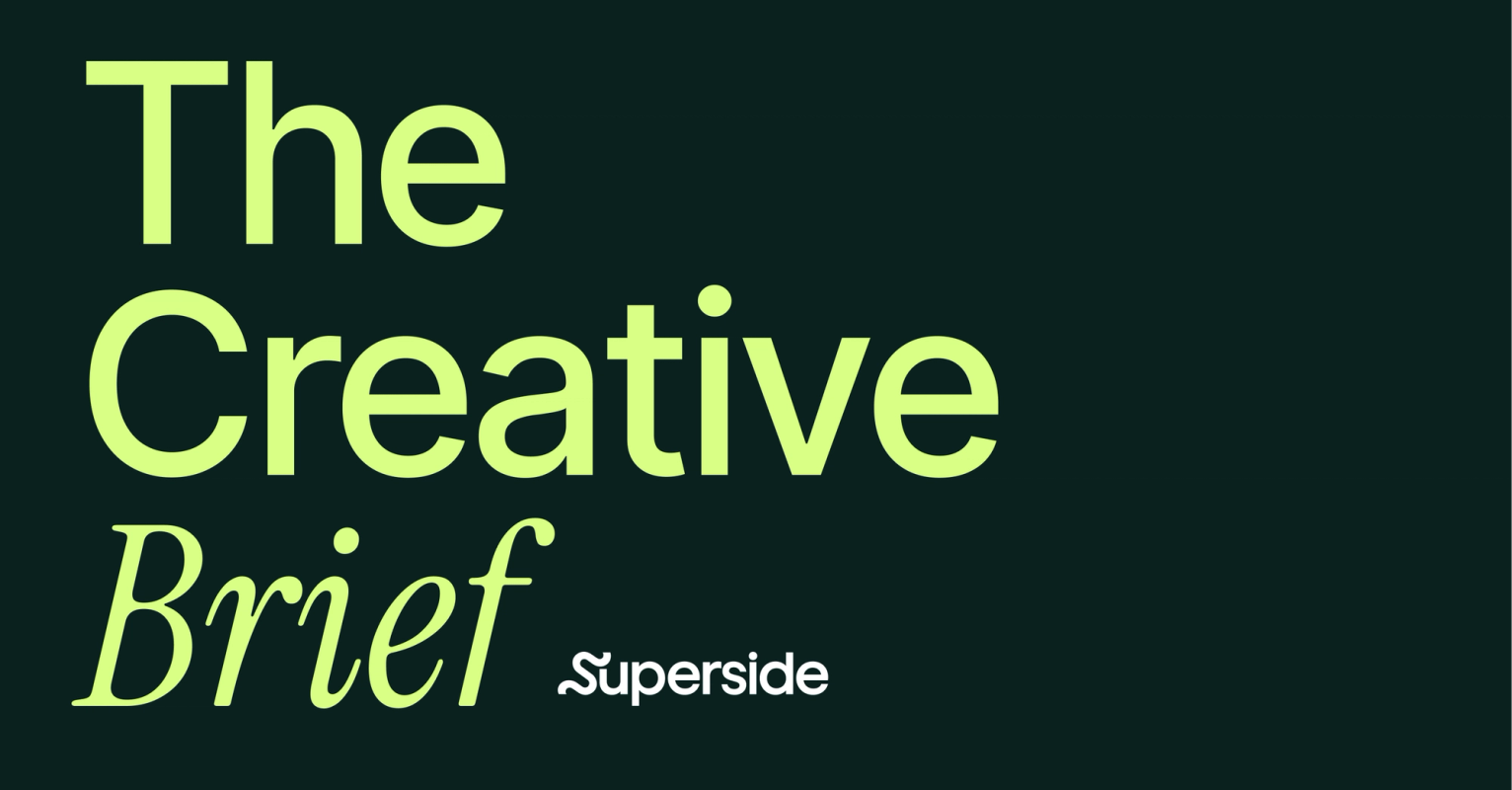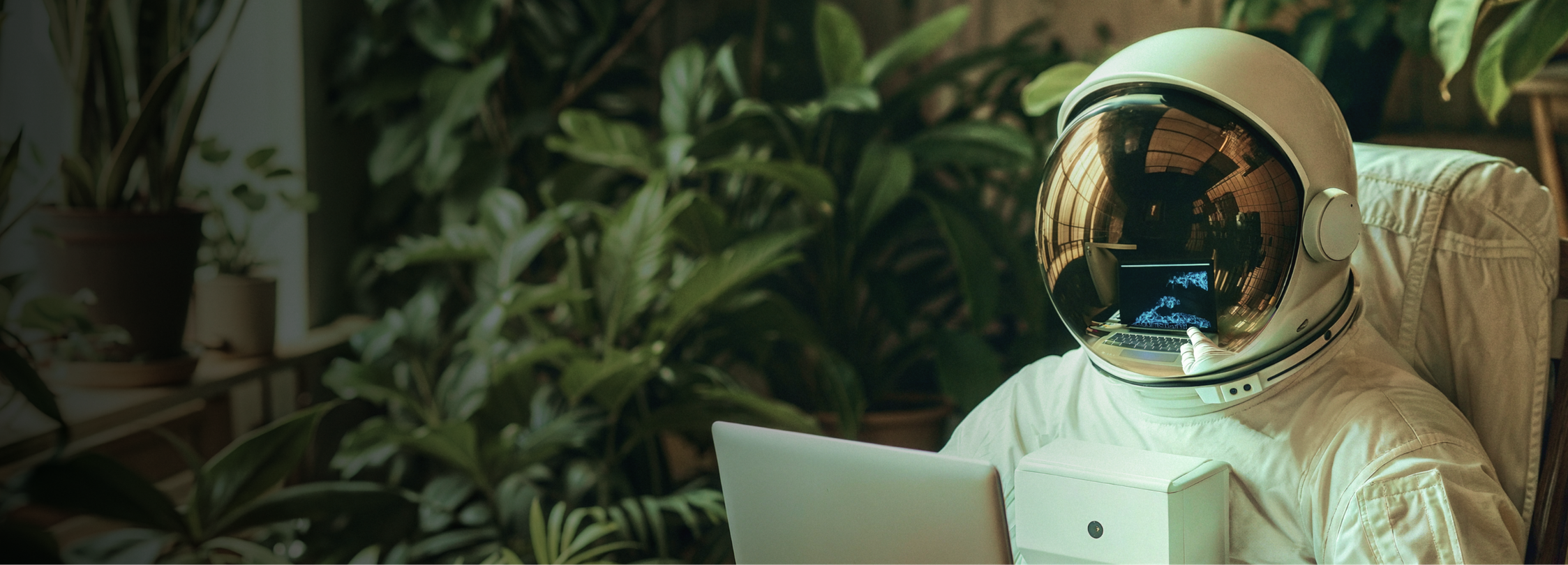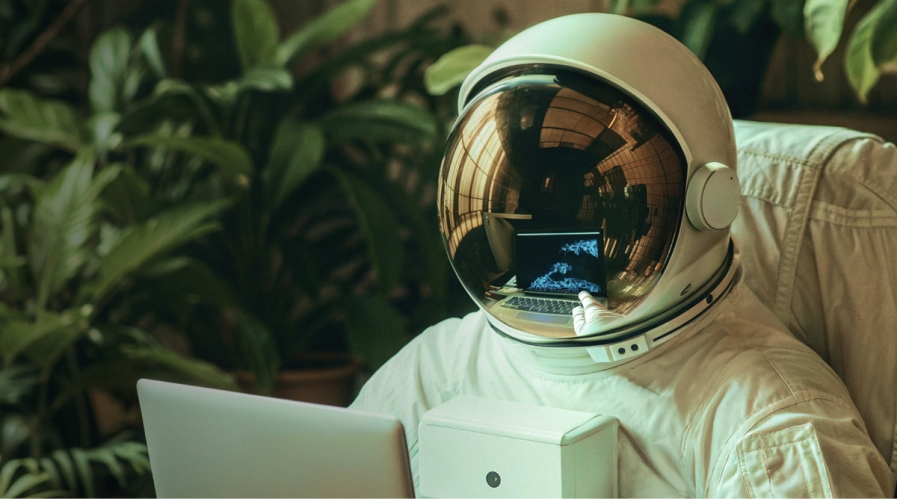AI in Brand Creative: Questions In-House Teams Are Asking

With AI, you can create a realistic image of an iceberg and populate ads with photorealistic people. But the real question is should you? When it comes to AI in brand creative, there are still more questions than answers. In this article, you'll get five key takeaways and several key answers from experts Adam Morgan and Inés Poggio.
Should you build your brand with AI? Which AI design tools do you use in your creative processes? How do you keep AI-generated assets on brand?
These questions and more swirl as creative directors, designers, copywriters, and other creatives work tirelessly to build dynamic brands. That’s why we invited Adam Morgan, Senior Director of Brand & Creative at Splunk to lead a conversation and take questions about using AI in brand creative. We also asked Superside’s Inés Poggio, AI Consulting Senior Manager to host and moderate the session.
It's hard to fit a topic this broad into one conversation. However, in this article, we'll share the key takeaways and some of the top questions. Ready for the insights? Let’s go!
AI in Brand Creative: 5 Key Takeaways
Businesses work incredibly hard to craft and create brands, and with the rise of AI, it's only natural for creatives to contemplate the impact this technology will have on how they communicate the brand. But, before we get to the questions from our session, let’s cover the high-level takeaways.
1. AI unlocks otherwise impossible opportunities
Morgan shared a situation where AI wasn’t just useful but essential to realizing his team’s creative vision.
The iceberg image (below) was the focal point for creative Splunk used during a big cybersecurity event. It’s the kind of image you can’t simply go out and shoot, and producing it with other manual tools would have taken too long.
That’s where AI shines in brand creative: It lets you turn those abstract ideas your brand represents into very real creative that isn’t limited by your production budget or your ability to travel to the Arctic.
2. Responsible AI use will look different for each brand
AI is a tool, and like any other tool, there’s no one-size-fits-all approach for every brand. Some conversation participants work at organizations, where there are already strict brand rules in place preventing too much experimentation with AI. Others had fewer guardrails and were free to push more boundaries.
For some highly regulated industries, where uncertainty means liability, using AI doesn’t make sense at all. Meanwhile, others, especially tech brands, will be on the bleeding edge, testing all the newest tools.
Morgan shared that a conversation about the event creative with his CMO triggered the questions that formed the basis of this conversation. He knew his brand and that he was making appropriate choices. But, for each brand, the point where you draw the line will differ.
This question that I've had and I've been working through: If I'm the steward of my brand, where's the line?
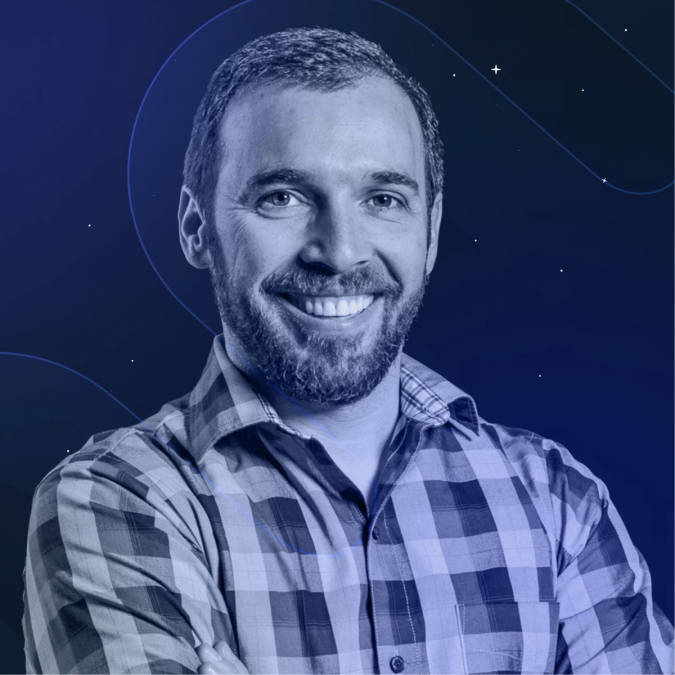
3. You can’t just look to the law to know what to do
While there have already been a few lawsuits in the AI world, it’s clear that regulators are playing catch-up—and will be for a while. The U.S. Copyright Office has determined that AI-generated content is generally not covered by copyright law. But what about AI-assisted creative? Or what about the creative that goes into training AI models?
If you’re using AI to build your brand, you’ll be setting your own rules for the foreseeable future until regulators catch up. That means your own ethics (and your brand’s perspective) will determine what’s right.
Source: Superside
4. Some brands will stand out by deliberately not using AI
When nearly every other brand was scrambling to deploy AI tools, Dove made a splash when it declared it would never use AI to represent women in its advertising. The move makes total sense. A brand based on radical authenticity and representing every woman’s unique beauty wouldn’t be helped by AI.
There are other Doves out there, but most brands can safely use AI tools without affecting their authenticity. Still, prepare for some trial and error.
Source: Dove
5. AI will never replace human creativity
One thing was clear in our session. Even when using AI to generate final assets that fit with your brand—or help build it—human creativity will always have its place. No one who attended our session mentioned interest in eliminating creatives in favor of AI tools. They want to accelerate ideation and streamline the overall process.
We still need that creative spark only people can provide.
🎧 Listen now on Spotify or stream from the Superside music site.
AI in Branding: Your Questions Answered
Alright, let’s highlight some of the best questions that came up during this conversation—and the answers.
How do you get a good quality final product with AI?
At the very beginning of the session, Morgan covered how Splunk used AI tools—specifically Midjourney and Adobe’s Firefly—to create branded assets for an industry event. The concept? Dealing with the iceberg of data security. With some clever workflows and experimentation, Morgan and his team further advanced the images, adding pops of color and photorealistic, AI-generated humans totally in line with Splunk’s overall visual brand.
That prompted questions from the attendees, especially from Jay, Head of Creative at a tech solutions provider in the UK. His teams are using AI to quickly generate concepts, but not in finished products. He wanted to know how Morgan's team got so much great on-brand creative with AI.
When adding people into the images, the only thing we did afterward was add phrases on the black t-shirt. As part of the prompt, we said ‘They have to be wearing a black t-shirt and they have to be in a data center, and it has to be this kind of data center, with this kind of background.’ It was a really long prompt.

How do you keep AI-generated content on-brand?
This question popped up more than once, with attendees wondering how to keep AI-enhanced creative work on-brand. After all, early experiments with generative AI tools—especially image generators like Midjourney—felt extremely repetitive and never quite on-brand. (But, like everything else, this is changing fast.)
Poggio shared how Superside uses a little bit of prompt engineering to keep assets on-brand when using AI:
- Use features like Midjourney’s style reference: This lets you load images as inspiration for whatever the tool generates, making it a lot easier to stay on-brand.
- Create assets to train your own AI model: Some tools let you essentially train your own version of their model. By creating a few quick illustrations or pieces that match the style you’re going for, you can tell it exactly what you want to see. It’s a bit of extra work, but consider it an investment.
- Build a prompt library for photorealistic assets: Details matter with these assets. That’s why you’ll want to spend time building a database of prompts that fit your brand, whether that’s in the style of clothes people wear, the places they’re in, or even just the vibe of the whole scene.
In the end, she also added a clear caveat that keeping AI creative on brand is about more than tools and prompting.
Ensuring brand consistency isn't just about the tools. Improving outcomes is about choosing your toolkit by analyzing your workflows first. Take the time to ask: What's your creative process? Where in that creative process does an AI tool make sense? Then, through iteration, you build custom prompts and ultimately, custom GPTs and image libraries.
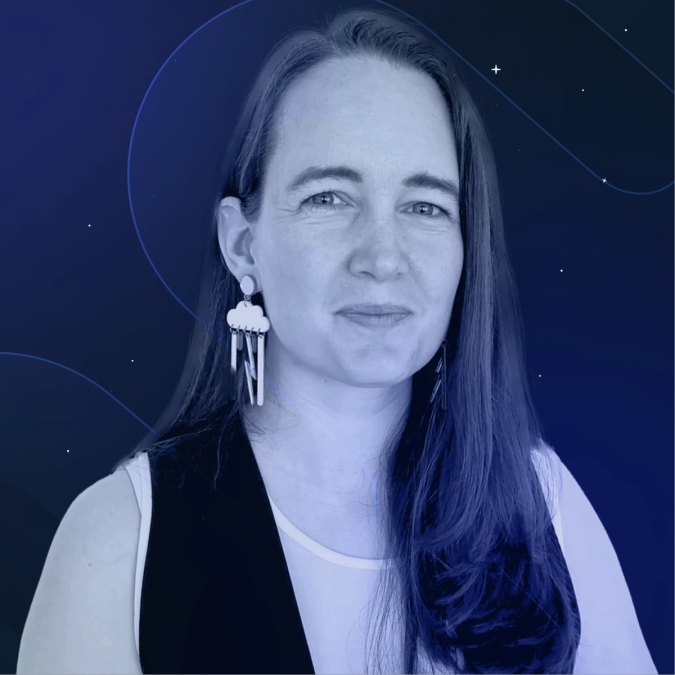
How can you get the knowledge needed to lead a creative team using AI?
While we’ve all had access to AI design tools for a few years, most of us aren’t nearly as familiar with them as we’d like. When you’re leading a team trying to use AI tools in brand creative, and they look to you for guidance, what do you tell them?
For Jo, a Creative Director at an independent agency in the UK, that was the big question around AI. When everything’s moving so quickly, how do you get the knowledge you need to lead that AI-enhanced team?
Morgan's answer: time and experience.
The same way that creatives have learned to understand good creative, because we know what’s good and what’s bad, right? And the way you learn is by getting exposure to good and bad. Time after time after time, experimenting and trying it.

How do you navigate conversations about using AI?
Should you tell people when you’re using AI? Furthermore, what's the best way to say it or even bring up the topic? How do you navigate their IP with AI tools that might use it for their models later? Not only were several attendees asking the same questions, but some had their own solutions to the problem.
Steve, Creative Director at a branding agency, shared how his team used AI to create assets. Much like the assets Morgan and his team used, these assets would have also been too difficult to create without AI, involving either thousands of dollars in photoshoots or days trawling through stock photo libraries.
They tried to create a one-page policy that would share how they’re using AI with clients to get approval before starting a new project. But the one-pager didn’t work and Steve couldn’t even imagine handing it over to a client.
So, instead, he and his team just ask the people they're working with and follow the appropriate guidelines.
FYI: At Superside, we'll always ask. Trust is paramount and it's still early days for all of us.
Bonus: Helpful AI in Brand Creative Resources
Everyone was kind enough to share some of the resources they’ve used to understand AI’s place in branding work. We’ve added some of our own, too.
- Creativity is a Blood and Guts Business. AI Has Neither Blood Nor Guts. An article on human creativity’s lasting place in a world of AI tools.
- Digital Doppelgangers. A presentation from Andrew Davis about getting better outputs from AI with prompt engineering.
- The Content Authenticity Initiative. A movement aiming to keep transparency and authenticity alive as the use of AI tools grows.
- Your Creative AI Copyright Questions, Answered. Our full guide on how using AI tools affects copyright law.
- Superside Answers Questions About AI. A YouTube playlist full of answers to some of the most popular questions about using AI tools.
- Why Your Brand Isn't What You Say It Is. An article that delves into why marketing and creative leaders need to act as brand advocates and educators.
AI in Brand Creative: An Ongoing Discussion
Study after study states that AI transformation is inevitable and in many ways invaluable. However, working through it from a brand lens is daunting. We're all learning as we go.
The problem is, that you only have a finite amount of resources compared to the infinite possibilities and impossible length of your to-do list.
We get it. Two years ago, we were offering a full range of traditional creative services to help busy teams get the assets they need. Then we realized, AI will change everything. So we started changing. We've trained a team of 160 AI design experts and counting. We've also completed more than 500 AI-Enhanced projects.
We offer AI-Enhanced Creative Services that can help you build image libraries and craft copy much more efficiently—and we can even assist with ensuring the success of your AI transformation.
But enough about us, we want to know more about you and your brand. Book a call below so we can have our own discussions about AI and your brand.
Ex-copywriter turned content strategist with two decades of creative chaos under her belt. She's helped scale content, brands and frozen pies—yes, really. Now? She empowers creatives to work smarter, not smaller.
Nick is a Content Writer and Strategist specializing in long-form marketing content and turning SEO traffic into paying customers. He's well-versed in the technology industry and pulls from his experience as a marketer who's worked closely with many creatives to craft content for Superside. Two truths and a lie: He's been a professional wrestler, writes on a blue typewriter and reads 100 books a year.
You may also like these
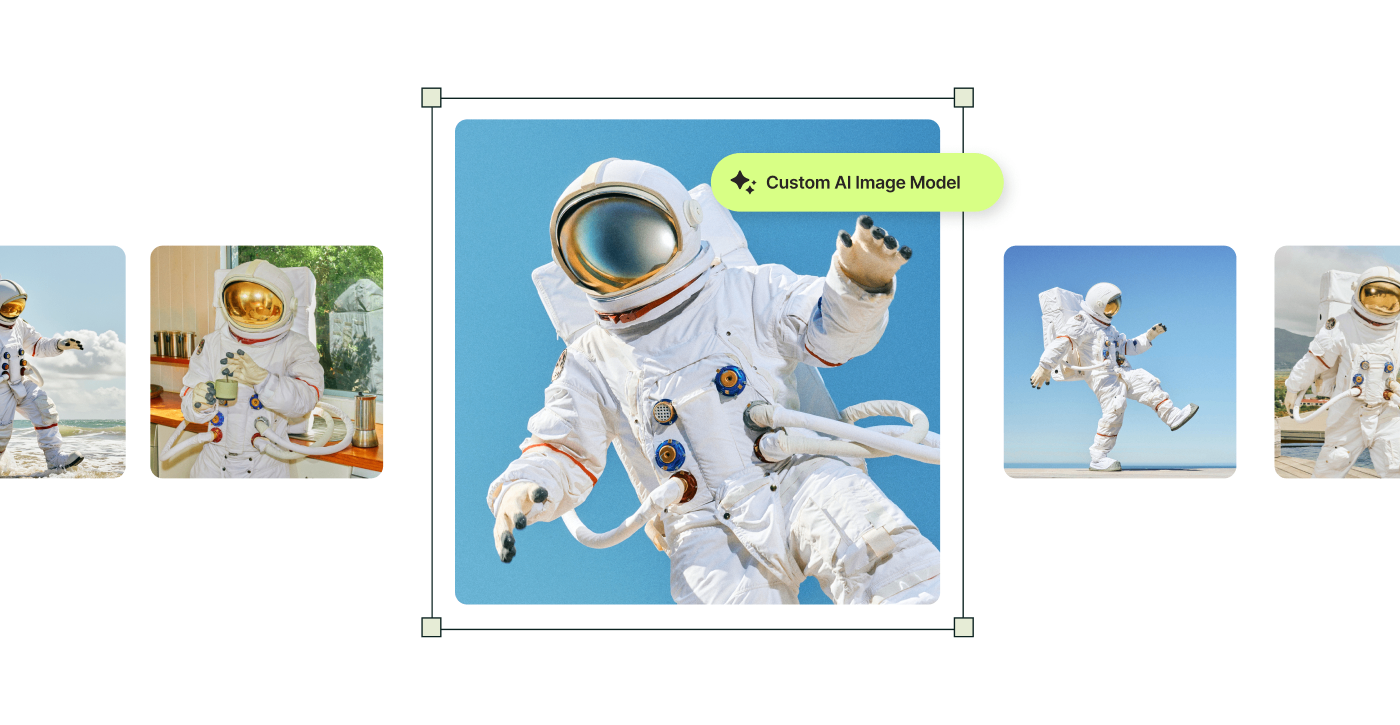
Your brand, on demand: Superside's Custom AI Image Models
You’ve done everything right—nailed the prompt, tweaked every reference, crossed your fingers. And still, out of 1,000 AI-generated images, maybe five are usable.Here’s the truth: AI doesn’t know your brand.Most tools rely on generic data. Once an image is generated, your brand is forgotten—wiped clean. It’s like starting from scratch with every new prompt.Until now.Teach AI your brand
AI adoption trends: What 190 creative leaders said
Remember a few short years ago when generative AI was the shiny new buzzword?Now the hype is settling and excitement is more tempered as creative teams shift from early experiments to deeper integration—aiming for real mastery and ROI.The problem isn’t convincing anyone that AI is worth implementing. It’s finding the right ways to do so. When we launched our AI Adoption Guide, we included a quiz that let creative leaders assess their AI readiness and adoption journey.To get a pulse of what’s happening on the front lines within working creative teams, we reviewed the responses we received from 190 creative leaders. Here’s what they said.Where creative teams stand
The Creative Struggle for Meaning in the Age of AI Adoption
Imagine being a painter in the 1840s, with people traveling for weeks to be immortalized by your delicate brushwork. As you finish your latest masterpiece, adding final details, a commotion catches your attention.Outside, people marvel at a new invention—a sturdy black box that captures reality in minutes, with more detail than any painting could achieve. You feel a shiver down your spine. If just pressing a button can do what you can, what are you here for?AI adoption has come to disrupt not only every industry, from medicine to finance to marketing, but also our daily lives. Large Language Models (LLMs) began as thought partners, capable of generating text in any language, tone or style, offering fresh ideas, planning support or even challenging your thinking. Then, other types of Gen AI like image generation, voice, music and video enhancement and other tools, emerged. What used to take long hours or days (maybe months) and specific skills, is now achievable by knowing how to prompt effectively and trial and error.Our AI Consulting Team surveyed over 800 creatives from 80 different companies and more than 10 countries. We listened to their thoughts and concerns on this new wave. By now, we have a much clearer understanding of how they think and feel about their work, and the changes AI is introducing into their workflows and their lives. Here are some of the results.
